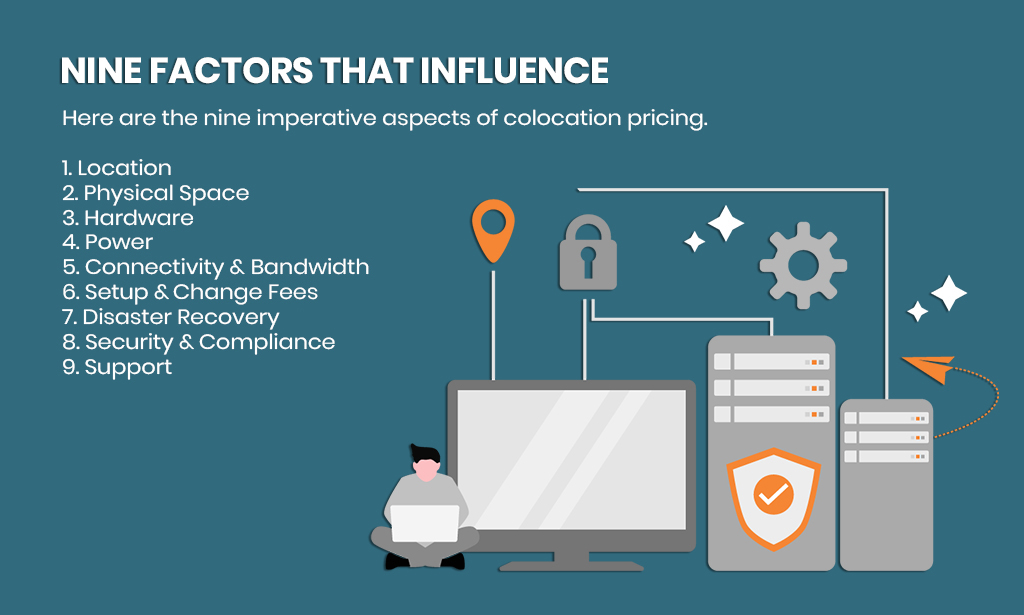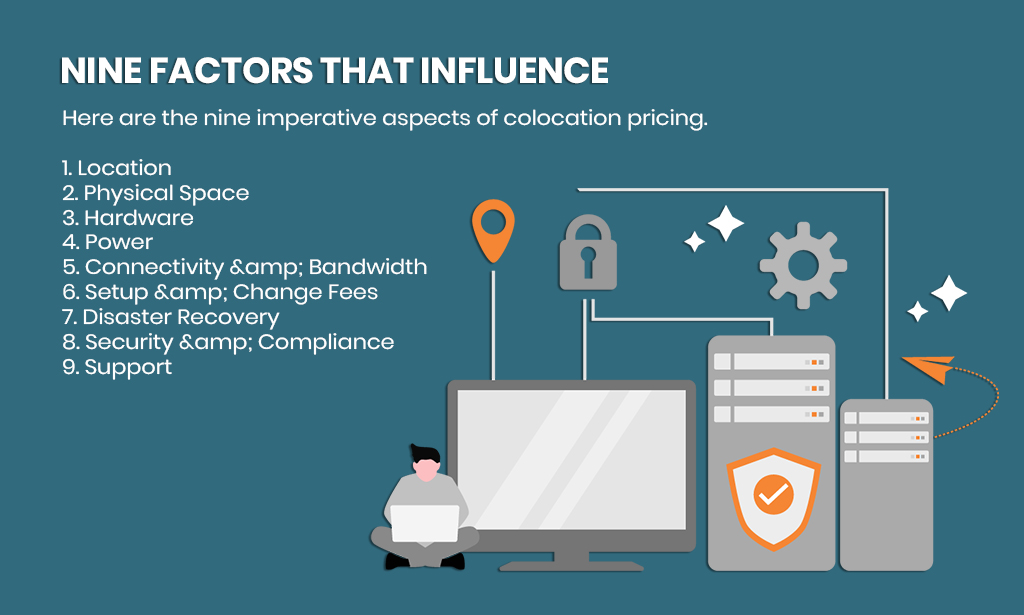Managed Colocation Pricing: Top Nine Things to Figure out Hidden Prices
Managed Colocation Pricing is a little complex subject to understand for novices. Several organizations opt for colocation hosting to save the costs of owning and operating their own data centers. But they often misread the pricing and end up frustrated due to unexpected expenses.
Several contributing factors of the colocation fee are the reason behind that. Unfortunately, decision-makers during the buying stage are not fully aware of them. This post from The Email Shop is here to solve the same problem. The pain of putting effort into searching for a UK cheap colocation only to find out it is unimaginably expensive is understandable for everyone.
People normally use hardware or physical space to estimate the price. But full rack colocation pricing is not the sole criterion while buying a full rack. There are a lot of other aspects that play their part.
Nine Factors That Influence Managed Colocation Pricing
This is not any generic post about what is colocation hosting. Instead, reading it will serve you as a colocation pricing calculator. We will discuss all the factors so you can self-estimate the price before you buy it. Here are the nine imperative aspects of colocation pricing.
1. Location
Location is a crucial factor, be it unmanaged or managed colocation pricing. Pricey real estate increases the hosting prices. The facility downtown will cost you more than the one in a rural area. However, on the other hand, urban areas have their own pros.
For example, they are nearer to airports, highways, and most importantly, the using organizations. The longer distance of suburbs can lead to higher latency and lower performance.
Moreover, the cost may vary from city to city. For example, colocation London prices could be quite different from that of Glasgow.
2. Physical Space
The amount of space you rent from the facility is another essential factor. We measure the size in rack units or square footage. Therefore, 1u colocation pricing is costly as compared to 2u colocation pricing.
The price of this designated space reflects a portion of the building’s operating expenses, such as ongoing maintenance and data center security. Some companies may charge based on allocated power.
Any special space requirements or customizations that affect power, cooling, or ventilation can increase prices. In addition, some organizations might require a private cage or suite that provides a lockable enclosed area for their equipment.
3. Hardware
You may bring your server to the facility, or lease equipment, but that has nothing to do with colocation renting space. Many other factors can add to boost this hardware cost, for example:
- Lease/Purchase other Equipment like cages, racks, or cabinets
- The facility may require special racks that can exchange heat and/or reduce noise
- Power Distribution Units
Playtech audiences tend to think hardware is the only point required for colocation pricing comparison. This is not true.
4. Power
Multiple variables gather to determine this significant portion of colocation costs. How efficiently your providers use electricity is one of the primary aspects. Moreover, there are expenses of cooling a customer’s hardware and running other HVAC components that increase the customer’s power costs.
24*7 availability of power and cooling is imperative. Providers must maintain the power infrastructure and arrange the backup generators. The exact formulas to calculate UK colocation pricing may vary from company to company.
5. Connectivity & Bandwidth
It is an indispensable requirement to connect to other parts of the data center or outside networks. Companies may charge you a one-time installation fee or even monthly charges.
Also, companies may need additional or dedicated IP addresses or want to establish connections with multiple cloud platforms. Both of them can add to overall expenses.
Companies have to pay for the bandwidth they use at colocation facilities. Requirements depend on the deployed applications and their supported workloads.
Some companies provide blended bandwidth services. They offer broadband services that span multiple carriers. If one fails, the other takes over automatically. That also causes managed colocation pricing to increase.
You Might Also Like to Read: Difference between Colocation Dedicated Server over Others
6. Setup & Change Fees
Setup and change fees are charged for particular operations. Some examples could be setting up cross-connects, hooking up new servers, discontinuing equipment, or adding monitoring or reporting. Unfortunately, companies are not very diligent when it comes to explaining these charges. On the contrary, they make them harder to understand by grouping multiple services into a single entry.
Setup and change fees add significantly to the base rate. Ensure that you fully understand what to expect when assessing a facility.
7. Disaster Recovery
What does any company do to ensure uptime? It implements redundant systems that provide fault tolerance. These systems could be redundant utility feeds, diesel generators, automatic transfer switches, and UPS battery backup systems.
Companies may install redundant cooling equipment or network switching gear. Of course, all of this comes at a price. During your research, figure out the level of disaster recovery and fault tolerance that workloads and data of that organization requires. Select the one that meets or exceeds their needs.
8. Security & Compliance
Sometimes, companies have to search for colocation facilities that meet specific compliance regulations. For example, a company that handles medical data in the U.S. would likely seek a hosting provider that meets HIPAA requirements.
Hosting providers play a role in meeting HIPAA’s requirements for protecting the physical environment. No doubt, complying with these regulations can raise the data center’s operating expenses, which means the customer pays more.
9. Support
Your IT team is responsible to deploy and maintain hardware themselves unless you opt for fully managed services. Although this is not a practical approach. You can pay for the services of remote hands or on-site technicians to carry out specific actions.
These remote hands can do many things, from setting up equipment to installing software to replacing cables. Some colocation companies charge a minimum monthly fee for that, which increases the regular charges. Others charge you on an as-needed basis when the services are rendered.
Putting It All Together
As a decision-maker, these nine points give you good starting points for questions. Ask your colocation provider to better understand your managed colocation pricing or the unmanaged one before you buy.
At The Email Shop, we provide quick and secure colocation server solutions. Feel free to reach out if you are interested or have a question about this post.










